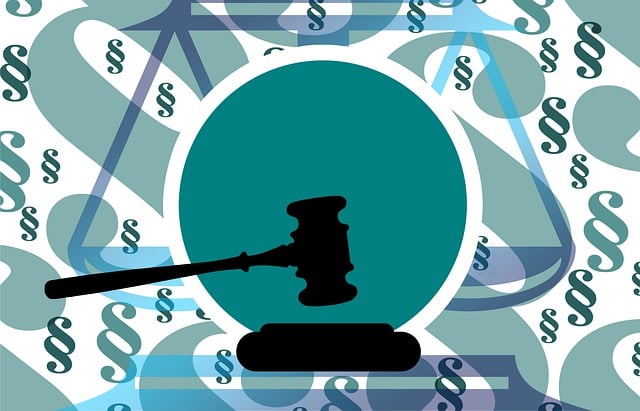Meticulous jury selection in healthcare law ensures fair representation. Attorneys use Legal Grounds for Jury Selection Objections to challenge biased or incapable jurors, aiming for a balanced panel with understanding of medical practices and regulations. This process is vital for complex cases like medical malpractice and white-collar defense, impacting case outcomes significantly by shaping narratives and decision-making. Firms' expertise in detecting biases ensures fair trials, protecting clients' rights and serving justice equitably.
In the intricate landscape of healthcare law, effective jury selection is paramount for securing just outcomes. This article explores the critical components of the jury selection process, delving into strategies to identify and challenge potential biases. We dissect legal grounds for objections, ethical considerations, and post-selection fairness. Understanding these dynamics empowers legal professionals to navigate complex healthcare litigation, ensuring impartial juries and robust trials. Essential insights for achieving justice within the healthcare legal framework.
- Understanding Jury Selection Process in Healthcare Law
- Legal Strategies for Obtaining Favorable Jurors
- Grounds for Challenges: Bias and Prejudice Detection
- Ethical Considerations in Jury Selection Procedures
- Post-Selection: Ensuring Fairness Throughout Trials
Understanding Jury Selection Process in Healthcare Law
The jury selection process in healthcare law is a meticulous and crucial step, as it ensures fair representation during legal proceedings. This process involves careful consideration of potential jurors, who must possess the aptitude to understand complex medical issues and legal arguments. The selection begins with a thorough screening of candidates based on legal grounds for objections, including challenges for cause and peremptory challenges. These mechanisms allow attorneys to dismiss jurors who might be biased or unable to impartially evaluate the case, ensuring a balanced panel.
Across the country, healthcare law firms assist both corporate and individual clients throughout all stages of the investigative and enforcement process. Skilled legal professionals navigate these objections, ensuring a diverse yet competent jury. This is vital for reaching just verdicts, especially in cases involving medical malpractice, where the nuances of healthcare practices and regulations must be comprehended by the adjudicators.
Legal Strategies for Obtaining Favorable Jurors
Selecting a jury is a crucial step in any legal process, especially for healthcare law firms handling complex cases. The goal is to assemble a group of individuals who can impartially evaluate the evidence and make fair judgments based on the legal grounds presented. Understanding how to navigate this phase effectively is key to achieving extraordinary results, particularly in high-stakes white-collar defense matters.
Strategists within these firms employ various tactics to ensure a balanced and sympathetic jury. This may involve challenging potential jurors through objections based on legal grounds for selection, such as bias or irrelevant experiences. By doing so, they aim to create a panel that will not only understand the intricacies of healthcare law but also empathize with the unique challenges faced by defendants in these complex cases. Effective legal strategies during jury trials can significantly impact the outcome, ultimately shaping the narrative and decision-making process.
Grounds for Challenges: Bias and Prejudice Detection
In healthcare law firms, detecting bias and prejudice during jury selection is crucial to ensuring a fair trial. Lawyers must scrutinize potential jurors’ backgrounds, experiences, and public statements to identify any preconceived notions or conflicts that could influence their decisions. This process involves examining legal grounds for objections, such as racial, ethnic, or gender bias, as well as unconscious stereotypes that might affect their impartiality. An unprecedented track record of successful cases for his clients can be a testament to the firm’s ability to navigate these delicate issues effectively.
By focusing on these factors, healthcare law firms aim to avoid indictments resulting from biased jury decisions. The goal is to foster an environment where every individual is judged solely based on the evidence presented in court. This meticulous approach not only respects the rights of defendants but also ensures that justice is served, leading to a more equitable outcome for all parties involved.
Ethical Considerations in Jury Selection Procedures
In healthcare law firms, ethical considerations play a pivotal role in jury selection procedures. The process must balance the need for an impartial jury with the unique challenges presented by healthcare cases. These include ensuring that potential jurors can set aside personal biases regarding medical practices and treatments, especially when dealing with complex issues like corporate and individual clients’ rights in white-collar defense cases. Lawyers have a professional responsibility to raise objections based on legal grounds during jury trials to protect their clients’ interests.
By scrutinizing potential jurors’ background and attitudes, healthcare law firms can identify biases that might skew the trial’s outcome. Objections should be strategic, focusing on factors like preconceived notions about medical litigation or specific industries, which could unduly influence decisions. This meticulous approach guarantees a fair trial for all parties involved, allowing corporate and individual clients to receive justice without prejudice in jury trials.
Post-Selection: Ensuring Fairness Throughout Trials
After careful selection, ensuring a fair trial begins with managing potential biases among jurors. Lawyers play a crucial role in maintaining integrity throughout this process by challenging any preconceived notions or conflicts that may impact a juror’s impartiality. The ability to raise legal grounds for jury selection objections is vital to filtering out individuals who cannot render an unbiased verdict, ensuring corporate and individual clients receive a fair trial.
This step involves scrutinizing potential jurors’ backgrounds, attitudes, and connections to the case. Objections are made based on specific legal reasons, such as bias or prejudice, ensuring that the final jury comprises members who can set aside personal views and render a just decision. This meticulous approach is essential in achieving a complete dismissal of all charges, especially in complex general criminal defense cases where fairness and impartiality are paramount.
The intricate process of jury selection in healthcare law cases demands a nuanced understanding of legal strategies and ethical considerations. By navigating the challenges related to bias detection and ensuring fairness throughout trials, legal professionals can effectively manage complex cases. Understanding the grounds for objections and employing strategic tactics to secure favorable jurors is key to achieving positive outcomes. This comprehensive approach, coupled with ethical practices, strengthens the integrity of healthcare justice.






